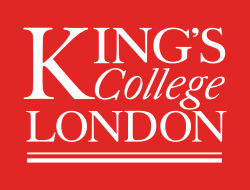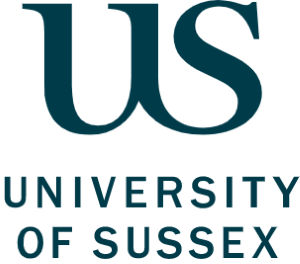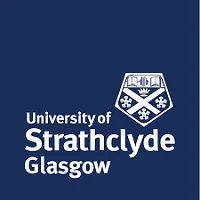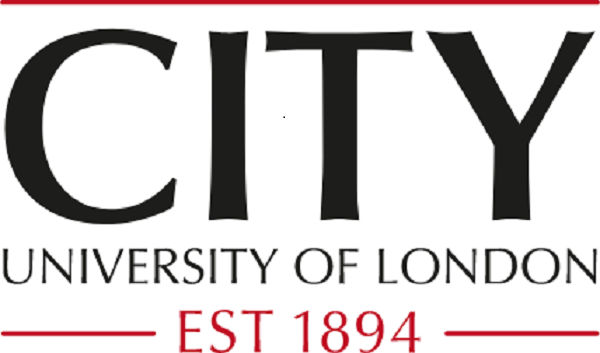130 Masters in Accounts & Finance Courses in UK- Apply Now!
The UK’s financial sector contributes over £132 billion (₹14.5 lakh crore) to the economy annually and employs 1.1 million+ professionals (Source: TheCityUK). With London being a global financial hub, finance graduates have direct access to top firms like HSBC, Barclays, JP Morgan, and Goldman Sachs.
A Master's in Finance in UK gives students access to world-class universities, top recruiters, and a strong job market.
Why Pursue a Master's in Finance in UK?
- UK universities like LSE, Oxford, and Imperial offer globally recognized finance degrees.
- Get a master’s degree and enter the job market faster.
- High demand for investment bankers, financial analysts, and fintech experts.
- Thousands of finance jobs open every year.
What This Page Covers:
Best Universities offering finance programs.
Tuition Fees & Living Costs – London vs. other UK cities.
Eligibility & Application Process for international students.
Scholarships & Financial Aid – How to reduce costs?
Career Opportunities – Salaries, job roles, and post-study work options.
Let’s explain everything you need to know about earning a Master's in Finance in UK.
Highlights: Master's in Finance in UK
| Key Factor | Details |
| Duration | 1-year full-time, 2-year option with work placement |
| Tuition Fees | £22,000 – £50,000 per year (₹23–₹53 lakh) |
| Top Universities | LSE, Oxford, Cambridge, Imperial, Warwick, Manchester |
| Specializations | Investment Banking, FinTech, Corporate Finance, Risk Management |
| Cost of Living | London: £1,500 – £2,500/month (₹1.5–₹2.7 lakh) Other cities: £800 – £1,500/month (₹85,000–₹1.6 lakh) |
| Finance Job Market | High demand in investment banking, fintech, and asset management |
| Average Salary After Graduation | £40,000 – £90,000 (₹42–₹95 lakh) per year |
| Work Permit & PR Pathways | 2-year post-study work visa Skilled Worker Visa leads to PR in 5 years |
Best Universities for Master's in Finance in UK (2025)
The UK has some of the best finance programs globally, with universities consistently ranked high in QS and Financial Times (FT) rankings.
Top Universities for Master's in Finance in UK
| University & Location | Fees (Per Year) | Course Highlights |
| London School of Economics (LSE), London | £42,000 – £50,000 (₹44 – ₹53 lakh) | QS Rank 2025: #3 globally for Finance. Specializes in investment banking, financial markets, and asset management. |
| University of Oxford, Oxford | £47,000 – £52,000 (₹49 – ₹55 lakh) | QS Rank 2025: #5 globally for Finance. Best for hedge funds, corporate finance, and wealth management. |
| University of Cambridge, Cambridge | £46,000 – £51,000 (₹48 – ₹54 lakh) | QS Rank 2025: #7 globally for Finance. Focus on quantitative finance, portfolio management, and risk analysis. |
| Imperial College London, London | £40,000 – £48,000 (₹42 – ₹51 lakh) | QS Rank 2025: #6 in the world. Leading program for FinTech, AI-driven finance, and blockchain technology. |
| Warwick Business School, Warwick | £37,000 – £42,000 (₹39 – ₹45 lakh) | QS Rank 2025: #10 in the UK. Strong links with investment firms, asset management companies, and consulting firms. |
| University of Manchester, Manchester | £32,000 – £38,000 (₹34 – ₹41 lakh) | QS Rank 2025: #15 globally. Known for corporate finance, private equity, and M&A roles. |
| Durham University, Durham | £28,000 – £35,000 (₹30 – ₹38 lakh) | QS Rank 2025: #20 in the UK. Specializes in financial risk management and quantitative finance. |
| Cranfield School of Management, Bedford | £30,000 – £37,000 (₹32 – ₹40 lakh) | QS Rank 2025: #25 in the UK. Offers career-focused finance training, best for professionals switching careers. |
| University of Edinburgh, Edinburgh | £33,000 – £39,000 (₹35 – ₹42 lakh) | QS Rank 2025: #18 in the UK. Excellent for corporate finance and investment management. |
| Bayes Business School (City, University of London), London | £34,000 – £40,000 (₹36 – ₹43 lakh) | QS Rank 2025: #22 in the UK. Strong investment management and global finance program. |
Which University is Right for You?
- For Investment Banking & Asset Management: LSE, Oxford, and Cambridge have the highest placement rates.
- For FinTech & Quantitative Finance: Imperial, Bayes, and Cranfield focus on AI-driven finance and blockchain.
- For Risk Management & Corporate Finance: Warwick, Manchester, and Durham offer strong career pathways.
- For Budget-Friendly Finance Degrees: Durham and Manchester provide high-quality education at lower tuition fees.
What Specializations Can You Choose in a Master's in Finance in UK?
The UK’s financial industry is one of the largest in the world, with over 2.3 million people working in finance-related roles (Source: UK Parliament).
Specializing in the right area can help you stand out in a highly competitive job market, especially in cities like London, which hosts global finance giants like JPMorgan, Goldman Sachs, and HSBC.
Which Specialization is Right for You?
| Specialization | What You’ll Learn | Where It Can Take You |
| Corporate Finance | Budgeting, capital markets, financial strategy, mergers & acquisitions (M&A). | CFO roles, treasury management, corporate banking, financial planning. |
| Investment Banking | Valuation, equity research, financial modeling, private equity. | Trading, hedge funds, portfolio management, M&A advisory. |
| FinTech & Financial Analytics | Blockchain, AI-driven trading, robo-advisors, digital banking. | FinTech startups, AI-powered trading firms, digital payment companies. |
| Risk Management | Compliance, credit risk, financial regulations, market risk. | Regulatory finance, insurance firms, compliance departments in banks. |
| Sustainable Finance | ESG investments, green finance, climate risk analysis. | ESG consulting, impact investing, corporate sustainability roles. |
If you’re interested in the growing FinTech space, London alone has over 2,500 FinTech startups (Source: Innovate Finance), which makes it a great place for students who want to work with AI, blockchain, or digital banking innovations.
Types of Master’s in Finance in UK
The type of degree you choose will define the kind of finance professional you become. Some programs focus on deep technical skills, while others prepare you for leadership roles in banking and finance.
Which Finance Master’s Degree Suits You Best?
| Degree Type | What You’ll Study | Best For |
| MSc in Finance | Covers financial management, investment strategies, corporate finance, and risk assessment. | Students looking for a broad finance career with options in banking, consulting, and corporate finance. |
| MSc in Financial Engineering | Focuses on quantitative finance, algorithmic trading, derivatives, and programming (Python, MATLAB). | Those with strong math skills aiming for hedge funds, risk management, or high-frequency trading firms. |
| MSc in Investment Banking | Prepares students for M&A, trading, and portfolio management with a focus on practical finance applications. | Individuals aiming for high-intensity careers in investment banking, private equity, or asset management. |
| MSc in FinTech & Financial Analytics | Covers blockchain, AI-driven finance, big data in banking, and machine learning for financial modeling. | Students interested in working with emerging financial technologies in digital banking, payments, and AI-powered trading. |
London processes 37% of global foreign exchange trading (Source: Bank of England), making it a prime location for finance professionals. If you’re looking for strong industry connections, consider universities in major finance hubs like London, Manchester, or Edinburgh.
For more details on top finance programs, check out the best business schools in the UK that offer strong industry ties and internship opportunities.
Eligibility Criteria for a Master's in Finance in UK
If you're planning to pursue a Master's in Finance in UK, you need to meet specific academic and language requirements. Some universities have stricter criteria, while others offer flexibility. Here's a checklist of what you need before applying:
| Requirement | Details | Notes |
| Bachelor’s Degree | Degree in Finance, Economics, Business, Accounting, or related fields. Some universities accept STEM backgrounds for quantitative finance programs. | Minimum 2:1 (60-70%) or equivalent. Some universities accept 2:2 (50-59%) with relevant work experience. |
| GMAT/GRE (if required) | Some universities require GMAT 650+, especially LSE, Oxford, and Cambridge. Others waive it for strong academic records. | Universities like Warwick, Durham, and Manchester do not require GMAT/GRE. |
| Work Experience | Required for MBA Finance programs but not mandatory for MSc Finance. | Some universities prefer 1-3 years of work experience in banking, investments, or finance. |
| English Proficiency | IELTS 6.5–7.0, TOEFL iBT 90–100, or PTE 65+. | Waived if previous degree was in English. |
| Additional Certifications | CFA Level 1, FRM, Financial Modeling, or programming skills (Python, R) are preferred for quantitative finance programs. | Not mandatory but can strengthen your application. |
Tip: If you don’t meet the requirements, some universities offer Pre-Master’s Finance courses to help bridge any academic gaps.
Application Process for a Master's in Finance in UK
Applications open a year in advance, with different deadlines depending on the university.
Step-by-Step Application Guide
| Step | What to Do? | Key Details |
| Step 1: Choose Your University | Shortlist universities based on rankings, specializations, tuition fees, and career prospects. | Top finance universities include LSE, Oxford, Cambridge, Warwick, and Imperial. |
| Step 2: Check Admission Requirements | Verify if you meet GPA, GMAT, work experience, and English proficiency criteria. | Some universities offer GMAT waivers for strong academic records. |
| Step 3: Prepare Required Documents | Gather Statement of Purpose (SOP), Letters of Recommendation (LORs), Resume, Academic Transcripts, and GMAT/GRE scores (if applicable). | A strong SOP and LORs improve chances of admission. |
| Step 4: Submit Your Application | Apply via UCAS (for select universities) or direct university portals. | Some universities don’t charge application fees for early applicants. |
| Step 5: Attend Interviews (If Required) | Some universities like LBS and LSE may require a video interview or online assessment. | Prepare with finance-related interview questions. |
| Step 6: Receive Your Offer Letter | Universities issue conditional or unconditional offers. | A conditional offer means you need to meet final requirements (GMAT, English scores, etc.). |
| Step 7: Apply for a UK Student Visa | Once you receive Confirmation of Acceptance for Studies (CAS) from your university, apply for a Tier 4 Student Visa. | Processing takes 3–5 weeks (More on UK student visa processing). |
Deadlines & Best Time to Apply
Most finance programs in the UK follow a September/October intake, but some also offer a January intake.
Application Deadlines:
- September Intake: Applications open October–January. Some universities accept applications until April, but earlier applications have better acceptance chances.
- January Intake: Applications close September–November of the previous year.
Rolling Admissions & Early Applications
Some universities use a rolling admissions process, meaning applications are reviewed as they come in. Applying before January improves your chances of securing a spot at a top-ranked university.
Cost of Studying a Master's in Finance in UK
Tuition fees vary by university, and living costs in London are significantly higher than in other UK cities.
Estimated Costs for Finance Students in the UK
| Expense Type | Estimated Cost (Per Year) | Notes |
| Tuition Fees | £22,000 – £50,000 (₹23–₹53 lakh) | LSE, Oxford, Cambridge, Imperial are on the higher end. Universities like Durham and Nottingham have lower tuition. |
| Living Costs (London) | £1,500 – £2,500 per month (₹1.5–₹2.7 lakh) | Includes rent, food, and transport. Renting in Central London is more expensive. (More on accommodations for students in UK) |
| Living Costs (Other Cities) | £800 – £1,500 per month (₹85,000–₹1.6 lakh) | Cities like Manchester, Birmingham, and Glasgow are more affordable. |
| Student Visa (Tier 4) | £490 (₹52,000) | Required for non-UK students. More details on UK student visas. |
| Health Insurance (IHS Fee) | £776 per year (₹83,000) | Required for visa approval. |
| Books & Study Materials | £500 – £1,000 (₹53,000–₹1 lakh) | Some universities provide free online resources. |
| Other Expenses | £1,000 – £2,000 (₹1–2 lakh) | Includes personal expenses, travel, and leisure activities. |
London is 25-40% more expensive than other UK cities. Choosing universities in Manchester, Edinburgh, or Leeds can cut down costs without compromising on quality education. Read more about the cost of living in the UK.
How to Manage Expenses?
- Apply for Scholarships: Check UK scholarships for international students.
- Work Part-Time: Students can work 20 hours per week during term time and full-time during holidays. Learn more about part-time jobs in the UK.
- Student Loans & Assistantships: Some UK universities offer tuition fee reductions or assistantships for research roles.
Scholarships for Master's in Finance in UK
There are several scholarships available for finance students in the UK, including government-funded, university-specific, and private grants.
Top Scholarships for MSc Finance in the UK
| Scholarship Name | Eligibility | Funding Amount |
| Chevening Scholarship | Open to international students with leadership potential. Requires a strong SOP and work experience. | Fully funded (Covers tuition + living expenses). |
| Commonwealth Scholarship | Available for students from Commonwealth countries. Requires high academic scores. | Full tuition + living allowance. |
| University of Oxford Saïd Business School Scholarship | For students applying to Oxford’s MSc in Financial Economics. | Covers 50% of tuition fees. |
| LSE Graduate Support Scheme | For students applying to LSE MSc Finance programs. Based on financial need. | £5,000 – £15,000 (₹5–₹16 lakh). |
| Warwick Business School Scholarship | Merit-based scholarships for Warwick MSc Finance students. | 25%–50% tuition fee waiver. |
| Imperial College Business School Scholarship | Open to top-performing students in MSc Finance & MSc FinTech. | Up to £20,000 (₹21 lakh). |
Apply for scholarships at least 6–12 months in advance. Some scholarships require separate applications, while others are automatically considered when you apply for admission.
If you're interested in fully funded education, check study in the UK for free for additional funding options.
Career Opportunities After a Master's in Finance in UK
If you’re aiming for a finance career, the UK is one of the best places to be. London is a global financial hub, home to top investment banks, hedge funds, and fintech startups. If you want to work in investment banking, financial analysis, or risk management, a master’s in finance can provide access to high-paying roles and long-term career growth.
Top Finance Jobs & Salaries in the UK
| Job Role | Average Salary (Per Year) | Top Employers |
| Investment Banker | £60,000 – £120,000 (₹63–₹127 lakh) | Goldman Sachs, J.P. Morgan, Barclays |
| Financial Analyst | £40,000 – £70,000 (₹42–₹74 lakh) | HSBC, Citi, Morgan Stanley |
| Risk Manager | £50,000 – £90,000 (₹53–₹95 lakh) | PwC, Deloitte, KPMG |
| Hedge Fund Analyst | £65,000 – £150,000+ (₹69 lakh–₹1.6 crore) | BlackRock, Citadel, Bridgewater |
| FinTech Analyst | £45,000 – £85,000 (₹47–₹90 lakh) | Revolut, Monzo, Wise |
| Corporate Finance Manager | £55,000 – £95,000 (₹58–₹100 lakh) | Amazon, Unilever, Tesco |
| Wealth Management Consultant | £50,000 – £100,000 (₹53–₹106 lakh) | UBS, Standard Chartered, HSBC |
London finance salaries are 20-30% higher than other UK cities due to demand and cost of living (Source: Glassdoor).
Best Companies Hiring Finance Graduates in the UK
Some of the biggest names in finance regularly hire MSc Finance graduates. Here’s where you’ll find the best opportunities:
- Investment Banks: Goldman Sachs, J.P. Morgan, Citi, Barclays
- Big 4 Consulting Firms: Deloitte, PwC, EY, KPMG
- Asset & Wealth Management: BlackRock, Vanguard, Fidelity
- FinTech & Digital Banks: Revolut, Stripe, Monzo
Want to know which finance jobs are the most in demand? Check out most in-demand jobs in the UK.
Finance Certifications That Complement a Master's in Finance in UK
A degree is great, but in the finance industry, certifications make a huge difference. Employers value candidates who go beyond academics and invest in professional training.
| Certification | Best For | Career Impact |
| Chartered Financial Analyst (CFA) | Investment banking, asset management | Essential for hedge funds, portfolio management, and equity research |
| Financial Risk Manager (FRM) | Risk management, compliance | Opens doors in risk & compliance roles at global banks |
| Chartered Alternative Investment Analyst (CAIA) | Hedge funds, private equity | Highly valued for alternative investments & asset management |
| Association of Chartered Certified Accountants (ACCA) | Accounting & finance | Recognized for corporate finance, taxation, and audit roles |
| Certified Treasury Professional (CTP) | Corporate treasury & financial strategy | Ideal for treasury roles in multinational firms |
Pro Tip: If you’re looking at investment banking or asset management, CFA is a must-have. If risk and compliance interest you, go for FRM.
Work Permit & PR Pathways After a Master's in Finance in UK
The UK provides multiple visa routes that allow international graduates to stay and work after completing their degrees.
Post-Study Work Visa Options for Finance Graduates
| Visa Type | Who Can Apply? | Validity |
| Graduate Route (Post-Study Work Visa) | International students who completed a UK degree | 2 years |
| Skilled Worker Visa (Tier 2 Work Visa) | Graduates with a job offer from a UK-based employer | 5 years |
| Global Talent Visa | High-skilled professionals in finance, tech, or research | 5 years |
| Innovator Visa | Entrepreneurs setting up a finance-related business in the UK | 3 years |
How to Get a UK Work Visa After Graduation
- Apply for the Graduate Route Visa
- Allows finance graduates to stay in the UK for two years after completing their degree.
- No job offer required at the time of application.
- Secure a Finance Job with Visa Sponsorship
- Finance roles in investment banking, asset management, fintech, and risk management often meet the £26,200 minimum salary requirement for a Skilled Worker Visa.
- Companies like Goldman Sachs, Barclays, PwC, and Deloitte actively sponsor international finance graduates.
- Switch to a Skilled Worker Visa (Tier 2)
- After securing a full-time finance job, apply for a Skilled Worker Visa, which allows you to work in the UK for up to 5 years.
- You can apply for PR (Indefinite Leave to Remain - ILR) after this period.
- Apply for PR (Permanent Residency) After 5 Years
- You must have lived and worked in the UK continuously for 5 years under a work visa.
- Meet the salary threshold and pass the "Life in the UK" test.
If you're planning to stay in the UK long-term, check out this guide on how to get UK citizenship for Indians.
Is a Master's in Finance in UK Worth It?
Pros & Cons of Studying Finance in the UK
| Factor | Pros | Cons |
| Global Recognition | UK finance degrees are highly ranked and recognized worldwide. | Some finance programs cost £22,000 – £50,000 per year (₹23 – ₹52 lakh). |
| Finance Job Market | London is one of the biggest financial hubs globally, with strong hiring demand. | Highly competitive job market for international students. |
| Visa & PR Pathways | Post-study work visa gives two years to find a job; Skilled Worker Visa leads to PR. | Need to meet the visa salary threshold (£26,200+) for a Skilled Worker Visa. |
| Earning Potential | Finance graduates earn £40,000 – £90,000 per year (₹42 – ₹95 lakh), with investment banking salaries reaching £100,000+. | High salaries are mainly in London, which has a high cost of living. |
| Internships & Networking | Universities provide internships, industry partnerships, and networking events with top finance firms. | Limited part-time finance jobs due to student visa restrictions (20 hours/week). |
If your goal is to work in investment banking, fintech, or asset management, the UK is one of the best places to study finance. Read more about why studying in the UK is a great choice.
- Level of study
- Streams
- Countries
- Cities
- Fees
- Exams Accepted
- Course Duration
- Masters
- Clear All

MSc Finance and Accounting
Imperial College London, UK
Msc Finance and Accounting at Imperial College will provide a solid theoretical foundation and exposure to some of the top corporate finance research in the world. With its emphasis on application and valuation challenges in mergers and acquisitions, private equity, and real estate.
Course Curriculum
Core modules introduce fresh and challenging subjects based on prior knowledge, including:
- Corporate Finance
- Application of Econometrics
- Finance for corporations
- Financial Ethics and Professional Standards
- Accounting for Finance
- Derivatives Fundamentals
- Portfolio management and investments
Course Highlights
| Course Full Form | Masters of Science in Finance and Accounting |
| Type of University | Public University |
| Degree Level | Post-Graduate |
| Course Duration | 1 Year |
| Average Tuition Fees | £42,200 |
| Degree Type (Stream) | Science |
Admission Requirements
Exams
- Duolingo English Test: Overall 125, with no band scoring lower than 115.
- IELTS: 7.0 overall (at least 6.5 in each component)
- Pearson Test: 69 overall (at least 62 in each component).
- TOEFL iBT: 100 overall (at least 22 in each component).
Documents/Prerequisite
- Passport
- Biometric Residence Permit
- Documents from previous qualifications
- Bank records
- TB Test Results
DURATION
1 YearFEES
INR 49.00L/yrEXAMS
-INTAKE SESSION
AUG 2025

MA Accounting and Finance
The University of Edinburgh, UK
The MA Accounting and Finance offered by University of Edinburgh is an advanced Masters course designed for students aspiring to become professionals in Accounting and Finance. Students will gain hands-on experience through practical exercises and real-world projects, allowing them to apply the concepts learned in class. The curriculum is carefully designed to ensure that students develop a strong foundation in Accounting and Finance and acquire the skills needed to solve complex problems in the industry. Upon completion of this course, students will be well-prepared to tackle the challenges of Accounting and Finance and pursue rewarding career opportunities such as Accountant, Financial Analyst, Auditor,Tax Consultant, Financial Manager.
DURATION
4 YearsFEES
INR 28.00L/yrEXAMS
-INTAKE SESSION
SEP 2025
More courses at The University of EdinburghView All

MPhil Accounting and Finance
University of Manchester, UK
DURATION
1 YearFEES
INR 20.15L/yrEXAMS
IELTS-7.0INTAKE SESSION
SEP 2024
More courses at University of ManchesterView All

Finance (Asset Pricing) MSc
Kings College London, UK
DURATION
1 YearFEES
INR 37.80L/yrEXAMS
-INTAKE SESSION
SEP 2024

MSc Advanced Composites
University of Bristol, UK
DURATION
1 YearFEES
INR 26.09L/yrEXAMS
IELTS-6.5INTAKE SESSION
SEP 2024
More courses at University of BristolView All

Mathematical Finance (MSc)
The University of Warwick, UK
DURATION
1 YearFEES
INR 35.40L/yrEXAMS
-INTAKE SESSION
SEP 2024
More courses at The University of WarwickView All
DURATION
3 YearsFEES
-EXAMS
-

MSc in Finance (Financial Technology and Banking)
Durham University, UK
DURATION
1 YearFEES
INR 31.56L/yrEXAMS
-INTAKE SESSION
SEP 2024

Accounting Governance and Financial Management
The University of Sheffield, UK
DURATION
1 YearFEES
INR 28.41L/yrEXAMS
-INTAKE SESSION
SEP 2024

MSc Accounting and Finance
University of Exeter, UK
DURATION
1 YearFEES
INR 31.23L/yrEXAMS
IELTS-6.5INTAKE SESSION
SEP 2024
More courses at University of ExeterView All

Accounting and Finance (MSc)
Cardiff University, UK
DURATION
1 YearFEES
INR 25.45L/yrEXAMS
-INTAKE SESSION
SEP 2024
More courses at Cardiff UniversityView All
Recommended articles for you

Accounting and Finance, MScEcon
University of Aberdeen, UK
DURATION
1 YearFEES
INR 25.29L/yrEXAMS
IELTS-6.5INTAKE SESSION
SEP 2024

MSc Accounting and Financial Management
University of Reading, UK
DURATION
1 YearFEES
INR 23.58L/yrEXAMS
IELTS-6.5INTAKE SESSION
SEP 2024
More courses at University of ReadingView All

Master of Science in Accounting and Finance
Queens University Belfast, UK
DURATION
1 YearFEES
INR 22.77L/yrEXAMS
IELTS-6.5INTAKE SESSION
SEP 2024

Sustainable Finance and Accounting MSc
University of Sussex, UK
DURATION
1 YearFEES
INR 22.43L/yrEXAMS
-INTAKE SESSION
SEP 2024
More courses at University of SussexView All

MSc Accounting and Finance
University of Leicester, UK
DURATION
1 YearFEES
INR 20.95L/yrEXAMS
-INTAKE SESSION
-
More courses at University of LeicesterView All

MSc International Accounting and Finance
Heriot-Watt University, UK
DURATION
1 YearFEES
INR 17.47L/yrEXAMS
-INTAKE SESSION
SEP 2024
More courses at Heriot-Watt UniversityView All

Accounting and Finance MSc
University of Surrey, UK
DURATION
1 YearFEES
INR 20.14L/yrEXAMS
-INTAKE SESSION
FEB 2025

MSc International Accounting & Finance (January)
University of Strathclyde, UK
DURATION
1 YearFEES
INR 25.79L/yrEXAMS
-INTAKE SESSION
JAN 2025
More courses at University of StrathclydeView All

International Accounting and Finance MSc
City, University of London, UK
DURATION
1 YearFEES
INR 31.23L/yrEXAMS
IELTS-7.0INTAKE SESSION
SEP 2024

Banking and Finance MSC
Birkbeck University of London, UK
DURATION
1 YearFEES
INR 20.00L/yrEXAMS
-INTAKE SESSION
OCT 2024
TRENDING SEARCHES
- Masters in Automobile Engineering in UK
- Masters in Mechanical Engineering in UK
- Masters in Civil Engineering in UK
- Masters in Computer Science in UK
- Masters in Fashion Designing in UK
- Masters in Dentistry in UK
- Masters in Psychology in UK
- Masters in Education in UK
- Masters of Law in UK
- Masters in Chemical Engineering in UK
- Masters in Economics in UK
- Masters in Pharmacy in UK
- Masters in Biomedical Engineering in UK
- Masters in Advertising in UK
- Masters in Nursing in UK
- Masters in Hospitality Management in UK
- Masters in Business Management in UK
- Masters in Software Engineering in UK
- Masters in Science in UK
- Masters in Engineering in UK
- Masters in Structural Engineering in UK
- Masters in Digital Marketing in UK
- Masters in Occupational Therapy in UK
- Masters in Optometry in UK
- Masters in Aviation Management in UK
- Masters in Renewable Energy in UK
- Masters in Public Relations in UK
- Masters in Fine Arts in UK
- Masters in Hotel Management in UK
- Hospitality Management Courses in UK
- Masters in Microbiology in UK
- Finance Courses in UK
- Masters in Actuarial Science in UK
- Masters in Special Education in UK
- Masters in Event Management in UK
- Masters in Fashion Management in UK
- Biomedical Science in UK
- Interior Designing Courses in UK
- Healthcare in UK
- Language in UK
- Fashion Designing Courses in UK
- Law in UK
- Aerospace Engineering in UK
- Medicine Courses in UK
- Pharmacy Courses in UK
- Psychology Courses in UK
- Computer Science Courses in UK
- Photography Courses in UK
- Northumbria University
- University of Portsmouth
- De Montfort University
- Sheffield Hallam University
- University of West London
- Queen Mary University of London
- University of Exeter
- University of Bristol
- Coventry University
- London Metropolitan University
- University of Cambridge
- University of Oxford
- University of Leicester
- Imperial College London
- Birmingham City University
- Kings College London
- Aston University
- University College London
- University of Strathclyde
- Bachelors in UK
- Masters in UK
- Study in UK
- Courses in UK
- Universities in UK
- Bachelors in Computer Science in UK
- Bachelors in Economics in UK
- Bachelors of Game Designing in UK
- BA in UK
- Bachelors in Psychology in UK
- Bachelors in Mechanical Engineering in UK
- Bachelors of Law in UK
Disclaimer
All information provided on this page is for general use and upGrad Abroad is not responsible for any errors or omissions. The Universities involved in this Program are accredited/recognized in the countries where they are established. Relevant terms and conditions apply.Any action taken upon the information found on this website is strictly at your own risk.

